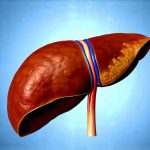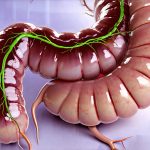The liver, often called the body’s detoxification powerhouse, is an incredibly resilient organ with a remarkable capacity for regeneration. Unlike many other organs, even after significant damage, the liver can rebuild itself – provided the underlying causes of damage are addressed and supportive measures are implemented. However, this isn’t a passive process; actively supporting your liver through lifestyle adjustments and dietary choices is crucial to maximizing its regenerative potential. Many factors contribute to liver stress in modern life, from processed foods and environmental toxins to excessive alcohol consumption and chronic stress. Understanding how to gently nudge your body towards liver health can make a profound difference in overall well-being.
This article focuses on practical, natural strategies you can incorporate into your daily routine to support liver regeneration at home. It’s important to remember that these approaches are meant to complement – not replace – professional medical care if you have an existing liver condition. The goal is proactive health and supporting the body’s inherent ability to heal. We will explore dietary modifications, lifestyle changes, and specific nutrients that can assist in optimizing liver function and fostering its natural regenerative processes. Focusing on holistic well-being, rather than quick fixes, is paramount for long-term liver health.
Dietary Support for Liver Regeneration
The food we consume directly impacts the burden placed upon our livers. A diet rich in processed foods, refined sugars, and unhealthy fats forces the liver to work overtime, hindering its ability to regenerate. Conversely, a nutrient-dense diet provides the building blocks necessary for repair and supports detoxification pathways. Prioritizing whole, unprocessed foods is arguably the single most impactful change you can make. This means increasing your intake of fresh fruits and vegetables – particularly those known to support liver health like cruciferous vegetables (broccoli, cauliflower, Brussels sprouts), leafy greens, beetroot, garlic, and turmeric.
Beyond simply what you eat, how you eat matters too. Consider mindful eating practices: chewing food thoroughly aids digestion, reducing the workload on the liver; avoiding large meals minimizes digestive stress; and staying hydrated supports efficient detoxification. Limiting alcohol consumption is critical, as alcohol is directly toxic to liver cells. Even moderate drinking can impede regeneration. Furthermore, reducing sugar intake – including hidden sugars in processed foods – helps prevent fatty liver disease, a major impediment to liver health.
Finally, incorporating specific foods known for their liver-supportive properties can be beneficial. Artichokes, for instance, stimulate bile production, aiding in the elimination of toxins. Grapefruit contains naringenin and naringin, antioxidants that may protect the liver from damage. Walnuts are rich in glutathione and omega-3 fatty acids which contribute to detoxification processes. Diet isn’t about deprivation; it’s about nourishing your body with what it needs to thrive.
Lifestyle Factors Promoting Liver Health
Beyond diet, several lifestyle factors play a significant role in liver regeneration. Chronic stress is a major culprit in undermining liver health. When stressed, the body releases cortisol, which can negatively impact liver function and hinder its ability to repair itself. Implementing stress-management techniques such as meditation, yoga, deep breathing exercises, or spending time in nature are crucial. Regular physical activity is also paramount. Exercise improves circulation, reduces inflammation, and helps maintain a healthy weight – all vital for liver health.
Furthermore, minimizing exposure to environmental toxins is essential. These toxins can come from various sources: cleaning products, pesticides, heavy metals, and even personal care products. Opting for natural alternatives whenever possible and ensuring good ventilation in your home can reduce your toxic load. Adequate sleep (7-8 hours per night) allows the liver to focus on repair and regeneration during rest. Prioritize self-care as an investment in your liver’s health. A holistic approach that addresses both internal and external stressors is key to maximizing regenerative potential.
Optimizing Gut Health for Liver Support
The gut and the liver are inextricably linked – often referred to as the “gut-liver axis.” A healthy gut microbiome supports efficient detoxification, reduces inflammation, and prevents harmful toxins from reaching the liver. An imbalance in gut bacteria (dysbiosis) can lead to increased intestinal permeability (“leaky gut”), allowing toxins to enter the bloodstream and overburdening the liver.
- Probiotic-rich foods: Incorporate fermented foods like yogurt (with live cultures), kefir, sauerkraut, kimchi, and kombucha into your diet. These foods introduce beneficial bacteria that contribute to a balanced microbiome.
- Prebiotic foods: Feed the good bacteria in your gut with prebiotic-rich foods such as onions, garlic, leeks, asparagus, bananas, and oats. Prebiotics provide the fiber necessary for probiotic bacteria to thrive.
- Fiber intake: A high-fiber diet promotes healthy bowel movements, aiding in toxin elimination. Aim for 25-30 grams of fiber per day from sources like whole grains, fruits, vegetables, and legumes.
Addressing gut health isn’t just about supplementation; it’s about fostering a thriving internal ecosystem that supports overall well-being and reduces the burden on your liver. A happy gut equates to a healthier liver.
The Role of Hydration & Detoxification Support
Water is essential for all bodily functions, including liver detoxification. Adequate hydration helps flush out toxins via urine and stool, reducing the workload on the liver. Aim for at least 8 glasses of water per day, adjusting based on your activity level and climate. Beyond water, certain herbs and nutrients can support natural detoxification pathways.
- Milk thistle: This herb contains silymarin, a potent antioxidant known to protect liver cells from damage and promote regeneration. It’s often used in supplements but can also be consumed as a tea.
- Dandelion root: Acts as a mild diuretic, increasing urine production and helping eliminate toxins. Also supports bile flow, aiding digestion.
- N-acetyl cysteine (NAC): A precursor to glutathione – the body’s master antioxidant. Glutathione is crucial for detoxification processes within the liver.
However, avoid harsh detox diets or cleanses that promise rapid results. These can often put more stress on the liver. Gentle, consistent support through hydration and targeted nutrients is far more effective. Detoxification isn’t about aggressive purging; it’s about supporting the body’s natural elimination processes.
Minimizing Toxic Exposure & Environmental Awareness
We are constantly exposed to toxins in our everyday lives, making it crucial to minimize them as much as possible. This requires a conscious effort to be more aware of potential sources and make informed choices.
- Cleaning products: Switch to natural, non-toxic cleaning alternatives like vinegar, baking soda, and lemon juice. Avoid harsh chemicals found in conventional cleaners.
- Personal care products: Choose organic or natural personal care products that are free from parabens, phthalates, and other harmful ingredients. Read labels carefully.
- Food choices: Opt for organic produce whenever possible to reduce exposure to pesticides. Wash fruits and vegetables thoroughly before consumption.
Reducing your toxic load isn’t just about protecting your liver; it’s about safeguarding your overall health. By creating a less toxic environment, you allow your body – including your remarkable liver – to function optimally and focus on regeneration. Proactive prevention is always more effective than reactive treatment.
Disclaimer: This article provides general information for educational purposes only and should not be considered medical advice. Always consult with a qualified healthcare professional before making any changes to your diet, lifestyle, or treatment plan. The information contained herein is not intended to diagnose, treat, cure, or prevent any disease.


















